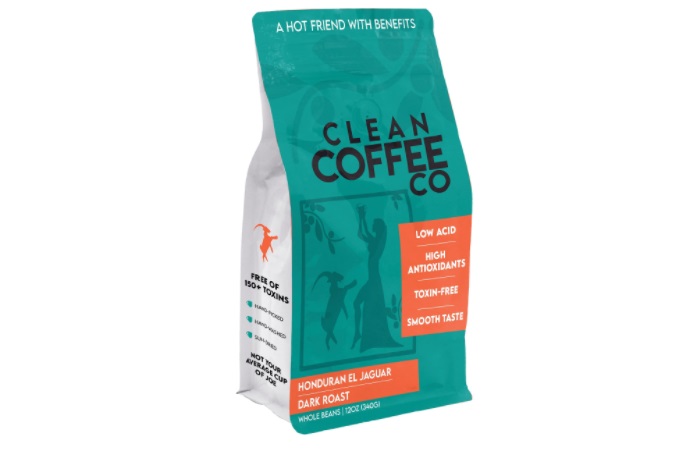
Low toxin coffee is not just another trend in the coffee industry—it’s a commitment to health and quality. When we talk about low toxin coffee, we’re focusing on coffee beans that are cultivated, processed, and roasted in a way that minimizes the presence of harmful substances, particularly mycotoxins. Mycotoxins are toxic compounds produced by molds, and they can sneak into coffee beans during various stages of production and storage.
Why should you care about low toxin coffee? Well, it’s all about what you’re putting into your body. Consuming high levels of mycotoxins can lead to health issues over time. By choosing low toxin coffee, you’re opting for a brew that’s not just delicious but also kinder to your body. Plus, it’s a choice that often aligns with sustainable and ethical farming practices—good for you and the planet!
Key Takeaways
- Health at the Forefront: Choosing low toxin coffee is a proactive step towards maintaining your health, reducing exposure to harmful mycotoxins.
- Quality Matters: Low toxin coffee often comes from high-quality beans that are carefully sourced and processed with health and safety in mind.
- Sustainable Choices: Opting for low toxin coffee supports farming practices that prioritize environmental health and worker welfare.
- Informed Decisions: Understanding the importance of low toxin coffee can guide you to make informed choices about your daily brew.
- Taste and Purity: Enjoying low toxin coffee means you get to savor the pure, rich flavors of the beans without unwanted chemicals.
What Is Low Toxin Coffee?
Low toxin coffee refers to coffee that is specifically produced and processed to contain minimal levels of mycotoxins—those unwelcome byproducts of mold that can sneak onto coffee beans. This type of coffee is all about ensuring your morning cup is as pure as it can be, focusing on health without compromising on taste.
Mycotoxins in coffee? Yes, it’s a thing. Coffee beans, like many agricultural products, can become moldy, leading to the presence of these toxins. The most common culprits in coffee are Ochratoxin A and Aflatoxin B1, which can find their way onto the beans during growth, harvesting, processing, or storage.
Now, why should this matter to you? While most people consume mycotoxins in such small amounts that they’re considered safe, long-term exposure to higher levels can pose health risks. These toxins have been linked to a range of health issues, from kidney damage to immune system disruptions. That’s not something you want in your daily brew!
Low toxin coffee producers take special care at every step to minimize these risks. They grow beans in conditions less favorable to mold, use processing methods that reduce mycotoxin contamination, and rigorously test their products to ensure they meet strict safety standards. The result? A cup of coffee that lets you enjoy all the benefits of your favorite beverage, with fewer worries about hidden toxins.
Understanding the Sources of Toxins in Coffee
Coffee beans, beloved for their rich flavor and aroma, can sometimes harbor unwanted guests: mycotoxins. These toxins arise from mold growth, which can occur at various stages of the coffee bean’s journey from farm to cup. Let’s break down how this can happen.
Firstly, the growing conditions matter. Coffee beans, typically grown in warm, moist climates, are prime targets for mold if not cared for properly. Post-harvest, the beans must be dried promptly and thoroughly; any lingering moisture can invite mold growth, leading to mycotoxin contamination.
Processing methods play a crucial role, too. Coffee beans can be processed in two primary ways: wet and dry. The wet process, which involves washing the beans, is generally more effective at reducing mold risk. However, if the drying phase of this process isn’t managed correctly, it can counteract the benefits. On the other hand, the dry process, where beans are left to dry naturally, can pose a higher mold risk if beans are not turned regularly or protected from moisture.
It’s a nuanced picture, but the bottom line is clear: meticulous attention to every step of the coffee bean’s journey is vital to minimizing mycotoxin risk.
Certifications and Standards for Low Toxin Coffee
When it comes to ensuring your coffee is low in toxins, certifications can be a helpful guide. Two key certifications to look for are USDA Organic and Fair Trade.
USDA Organic certification signifies that the coffee has been grown without synthetic pesticides and fertilizers, which can reduce the risk of mycotoxin contamination. It also implies that the farming practices used are more likely to promote healthy, biodiverse soil, which can further mitigate mold risks.
Fair Trade certification, while primarily focused on ensuring fair labor practices, also often correlates with better agricultural practices. Fair Trade farmers are encouraged to follow environmentally friendly practices, which can include those that reduce the risk of mold and, consequently, mycotoxins.
Popular Low Toxin Coffee Brands
When it comes to enjoying a cup of coffee without the worry of toxins, some brands have made a name for themselves by prioritizing low toxin processes. Let’s look at a few standouts.
Peak Performance is one such brand that has garnered attention for its commitment to low toxin coffee. They source their beans from high-altitude regions, which naturally reduces the risk of mold. Their coffee is tested for various contaminants, including mycotoxins, ensuring that every sip you take is as pure as possible.
Isagenix offers a unique blend that combines high-quality Arabica beans with additional ingredients like green tea extract and coconut oil. While their main allure is the added health benefits, they also focus on low toxin processes, although they are less transparent about their testing results.
Purity Coffee is another top contender, priding itself on a rigorous testing regimen to ensure their beans are free of mycotoxins. Their commitment extends beyond just the coffee; they’re dedicated to sustainable and organic farming practices, which contribute to the overall purity of their product.
Brewing Methods and Mycotoxin Levels
The way you brew your coffee can also impact the levels of mycotoxins in your final cup. Surprisingly, the brewing process can play a role in reducing these unwanted compounds.
Studies have shown that certain brewing methods, particularly those that involve longer exposure to hot water, can help reduce the levels of mycotoxins like ochratoxin A. For instance, using a French press or a pour-over method, where hot water interacts with the coffee grounds for a longer period, can be more effective in reducing toxins than quicker methods like espresso brewing.
It’s not just about the brewing time, though. The temperature of the water and the coarseness of the coffee grounds can also influence the extraction of mycotoxins. So, if you’re concerned about mycotoxins, it might be worth experimenting with your brewing method to find the one that not only tastes great but also minimizes potential toxins.
FAQs
How can I identify low toxin coffee?
Look for certifications like USDA Organic or Fair Trade, which often indicate lower toxin levels. Also, research brands that specifically test for mycotoxins and advertise low toxin products.
What impact do mycotoxins have on health?
While occasional consumption of mycotoxins in small amounts is generally considered safe, long-term exposure to high levels can lead to health issues, including liver and kidney damage, immune system disruption, and potentially increased cancer risk.
Any tips for reducing toxin exposure in coffee?
Yes! Opt for whole beans and grind them yourself to ensure freshness. Choose coffees with clear low toxin testing protocols, and experiment with brewing methods that may reduce mycotoxin levels, like using a French press or pour-over.
Final Thoughts
Choosing low toxin coffee is more than just a personal health choice; it’s a nod towards ethical and sustainable farming practices. By being mindful of the coffee you consume, you’re supporting a healthier body and a healthier planet. Remember, enjoying coffee shouldn’t come with compromises, especially concerning your well-being.









